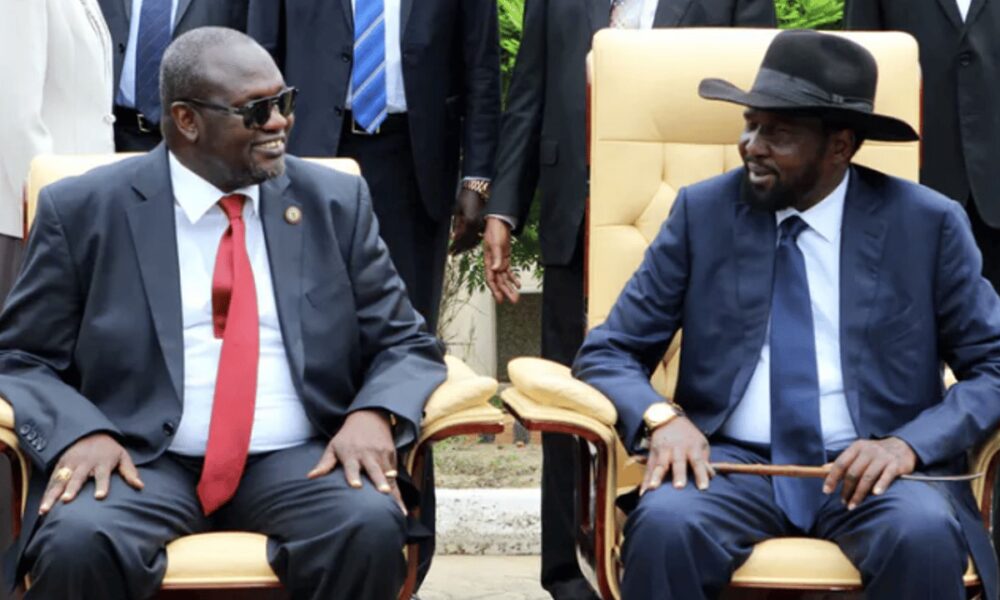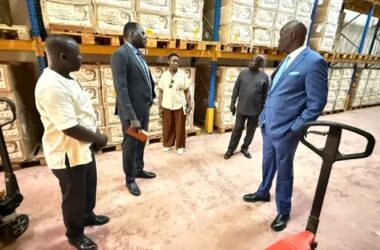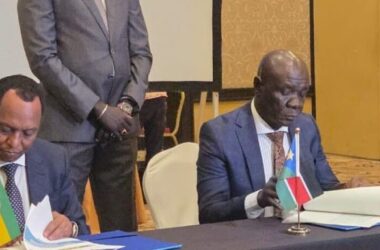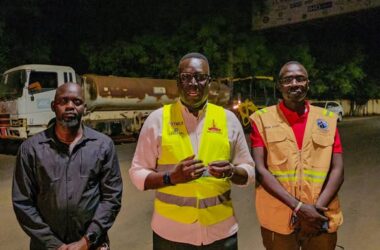By William Maduok & Jacob Onuha Nelson
South Sudan’s transitional government has for the second time extended its tenure for another two years.
The first extension after the end of the Peace Roadmap, ended yesterday and today, February 22, 2025 makes the beginning of a new era.
Dr. Martin Elia Lomuro, the Cabinet Affairs minister declared in a statement, that has been circulated to media houses Dr. Martin Elia Lomuro, Minister of Cabinet Affairs, in a statement.
“South Sudan’s transitional period has officially been extended for two more years, starting today,” Dr. Lomuro announced.
He noted that the new timeline pushes the transition period to conclude with a newly elected government in February 2027.
The government of national unity informed citizens that the extension was necessary to facilitate a smooth and peaceful transition.
In a separate statement, the Community Empowerment for Progress Organization (CEPO) raised five key concerns for the leadership in government, the presidency, and the parties involved in the revitalized peace agreement.
Edmund Yakani, Executive Director of CEPO, urged political leaders to change their attitudes and promote trust and confidence in working together toward a successful political transition.
“Election preparations must be conducted legally, as the electoral timeline requires concrete actions to create suitable conditions for holding peaceful and credible elections,” he stated.
However, Yakani pointed out that a two-year extension will not provide enough time for the permanent constitution-making process or conduct a population census.
“Therefore, urgent political decisions are required to either separate elections from constitutional making and population census or to consider practical options, such as using the 2010 election constituencies,” he advised.
The constitutional process takes 18 months, while the population census requires 16 months. CEPO called for unrestricted civil and political space at both the national and state levels.
Activists urged timely and genuine funding for the institutions responsible for implementing outstanding tasks, in order to create an environment conducive to elections.
“The month of October 2025 will determine the country’s readiness for the December 2026 elections. Therefore, all tasks related to creating suitable conditions must be finalized by October 2025,” Yakani emphasized.
CEPO also suggested that a stakeholder conference on the transitional period from 2025 to 2027 should be conducted by mid-March 2025 to set the agenda.
Mr. Yakani called for monthly media briefings on the performance of the transitional period, as well as quarterly releases of national transitional indicators on compliance and non-compliance.
“CEPO urges the National Transitional Committee, the presidency, and the parties to the R-ARCSS to hold an urgent inclusive workshop to review the implementation matrix for the newly extended transitional period from 2025 to 2027,” he stated.
However, the United States, the United Kingdom, and Norway expressed their collective dissatisfaction on Thursday regarding the parties’ failure to bring the transition period to a peaceful and effective conclusion under the 2018 peace agreement.
Speaking on behalf of the Troika at the R-JMEC meeting, Michael J. Adler, U.S. Ambassador to South Sudan, expressed regret that the parties have not made significant or meaningful progress in implementing their peace agreements.
“We can only highlight how often RJMEC meetings have underscored this lack of progress. When the transitional government announced its latest extension last September, it was disappointing but not surprising to those of us who had attended these monthly meetings,” he remarked.
“It was not a surprise to those of us who recalled the RJMEC discussions about the previous extension in September 2022 and who had witnessed two years of RJMEC meetings demonstrating little significant progress on the steps pledged in the so-called roadmap.”
Ambassador Adler added, “Indeed, almost seven years after the signing of the peace agreement, we continue to see a failure of political will on the part of its signatories to bring the transitional period to a peaceful and successful conclusion.”
He also noted a persistent lack of political will to use public funds effectively.
“We observe a continued failure of political will on the part of South Sudan’s leaders to meet the hopes of their people and the expectations of international partners for peace and a government responsive to their needs,” the envoy stressed.
“The absence of action since last September’s announcement of yet another extension sadly leads us to doubt the transitional government’s commitment to making this extension the final one. The patience of South Sudan’s partners and its people is exhausted.”
According to Ambassador Adler, the situation in the country has only worsened since September, with little progress made toward implementing the 2018 accord.
“Salaries remain unpaid, further eroding public security and services. Living standards have continued to decline,” he stated.
“Not only has there been no progress in unifying the armed forces, but we are also witnessing direct clashes between forces associated with the signatories in Western Equatoria and Upper Nile, in addition to violence in other parts of the country.”
The Troika urged all parties to the accord to take immediate action to implement their commitments, emphasizing that there is no more time to waste.
“However, the clashes are merely symptoms of a deeper issue: the fundamental problem remains the willful refusal to meet peace commitments and to use public revenue transparently and for the public good.”




